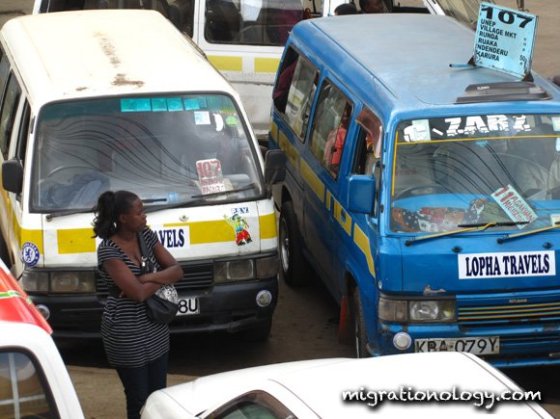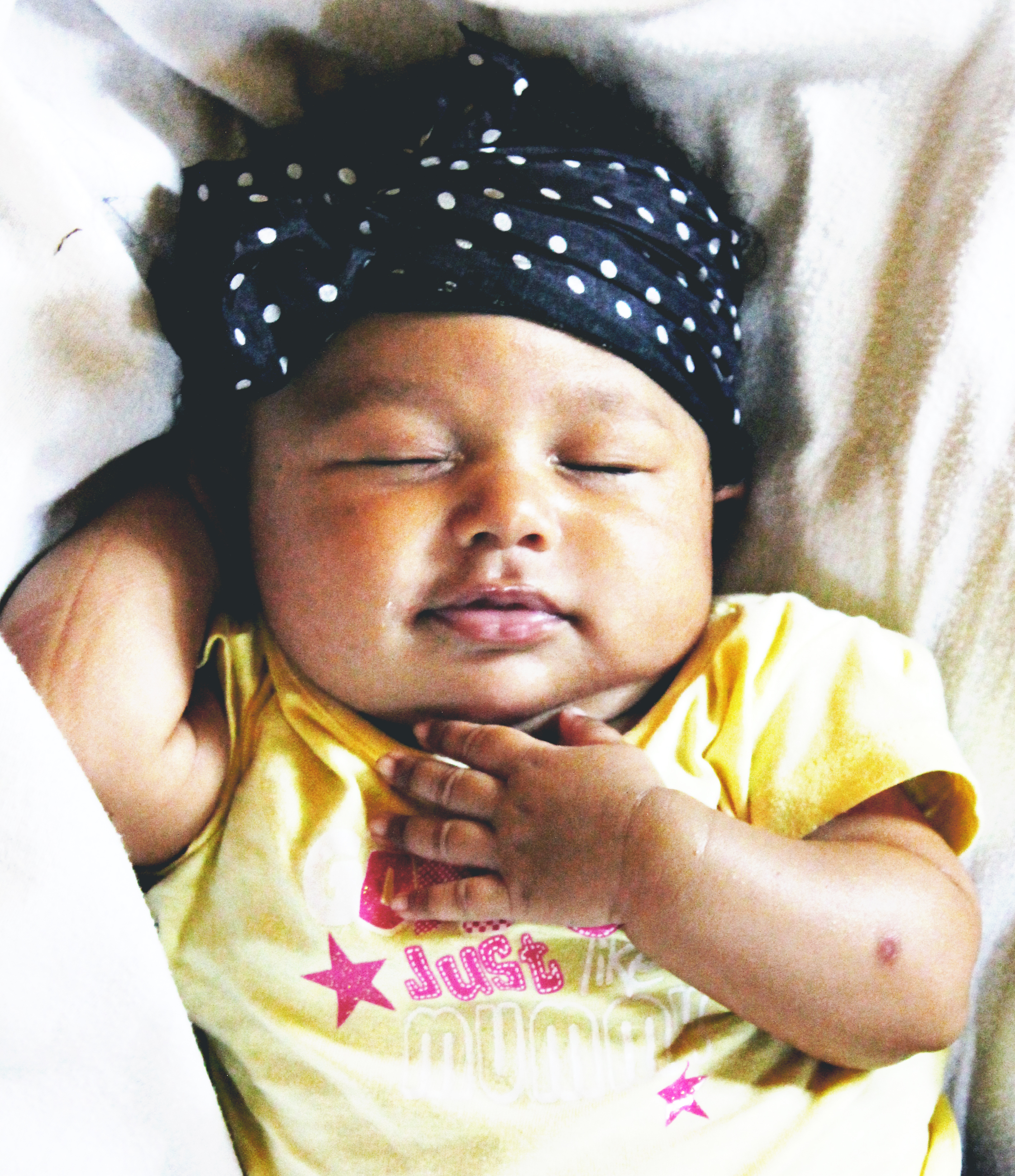As soon as you land in Kenya and venture outside the airport you are likely to notice the hundreds of nissan vans marked with a single yellow stripe racing down the road. ‘Matatus’ are the most common public transport in Kenya. They are basically a 14 seater Nissans that look like they belong in a wrecking yard instead of on the road. I’ve traveled in my fair share of these rusty vehicles because I don’t have a car, taxis are too expensive for everyday use, matatus are also very easy to find, cheap and are available pretty much anywhere, any time. On one hand they can be quite enjoyable but on the other they can make you frustrated and annoyed – it really depends on how you look at it. Here are some tips for virgins of the matatu riding experience…..
1. Know where you’re going and act confident. Matatu’s have ‘routes’ identified by numbers displayed either in the front windscreen or by the conductor holding up a piece of small wood with the route number on it. If you don’t know where you’re going (they can tell), it’s easy for a matatu conductor to lure you in, assuring you that he’ll take you where you want to go when in fact he is well aware that he’s taking you a completely different direction. For him it’s just an extra few shillings from an unsuspecting westerner but for you it’s a major pain in the ass as well as potentially dangerous. Tip: Look confident, ask someone (not the matatu people) and try to know the route number you need.
2.Pick a good seat. If possible, choose a seat where you won’t have to play musical chairs with the other passengers for your journey- especially if it’s a long one and you have bags/stuff to carry. That is, a seat in the front next to the driver (there are only 2) or a seat in the first two rows at the window. Avoid sitting at the back on the matatu, it’s usually far more cramped and annoying to get in and out and harder to ensure the driver stops at your destination.
3. Know where your shit is. If you have a bag, don’t leave it in between you and another person. I pretty much always have my bag on my lap but NOT near the window if it’s open, many a thug has reached in and grabbed a handbag from passengers when the matatu is stuck in traffic. If you have stuff in your pockets, beware of the wandering hands if the matatu is full and you’re all squashed together. I also always carry my phone in my hand and the money I need so that I don’t need to go into my bag for any reason and I know exactly where my stuff is. I’ve never (touch wood) had anything stolen in a matatu so far!
4. If you are not sure of how much the trip should cost, ask a passenger or wait and see what others are paying. Because conductors and passengers speak in Swahili, if you don’t understand then it can be difficult to know what’s going on. Conductors will almost always try and rip you off by asking for more than they should if you don’t know and already have the money ready. What I used to do is wait to see how much others were paying and then act confident when giving the money. If you need change then make sure you get it because the conductors will surely try to avoid that as much as possible. The best thing to do is to have the right amount of money so you don’t need change and you don’t get into an argument with the conductor. But if you don’t know what the exact money is, have as little as possible (like 50 bob) so they can’t try and charge you more than that when it’s actually 20/-. Remember matatu’s are cheap. Wait to see what others are paying or ask another passenger.
4. Be aware. Thieves are plentiful in certain areas and the moment you think you’re fine and stop being aware of what’s around you, is the moment you will be robbed. There are specific things to watch for and a big thing for me is; trust your instinct. Thieves will not only steal from white people (although we are a huge target) but anyone they think they can fool or anytime they have an opportunity. Firstly, they are usually dressed nice with good phones so you don’t suspect they ‘need’ to steal. Secondly, they usually have something in their hands like a newspaper, wrapping paper, a book, bag or something they can cover your bag with while they put their hand under trying to get your money/phone. Thirdly, thieves usually work in a group. There might be 2-3 of them who come onto the same matatu and work their way to the seats right next to the people they want to steal from and definitely the lone white person or white girls they think they can fool. Sometimes they even work with the matatu drivers/conductors! What happens next is the distraction:
They drop their keys or some coins so you, being the nice person you are, start looking down and searching the floor for them while they take the opportunity to strategically place their wrapping paper/newspaper/bag over your bag and put their hands under to steal what’s in your bag because you’re not paying attention.
‘I’m going to be sick, open the window!’ They do this so you turn frantically and attempt to open the window while you leave your bag to be opened and your stuff to be taken.
They open the newspaper so it’s over your bag and vision of their wandering hands into your bag.
For the guys with pockets be aware of when the matatu is full and the guy next to you seems to be moving a hell of a lot. He’s most likely trying to move your wallet/phone/money up to the top of your pocket so he can easily reach down and steal it.
And this is my favourite attempt from thieves….
‘Police, Police! Put your seatbelt on!’ And while you’re scrambling to find the seatbelt that doesn’t exist, they are reaching into your bag stealing your money/phone.
If you follow these tips and remain aware of your surroundings, then you are sure to have a pleasant matatu experience!
🙂



